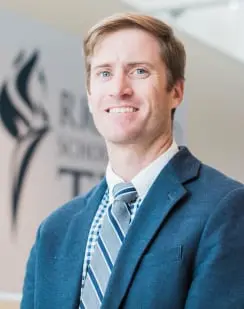
|
 | 1 LU / HSW |

|
 | 1 LU / HSW |
An interdisciplinary blend of K12 and Higher Education thought leaders met to discuss the future of healthy education spaces. Four sessions were created in advance by the participants which were led by experts in their field. Stakeholders representing operations, school board, facilities, planning, maintenance, superintendent, director of sustainability, res life, researchers, consultants, and manufacturers all shared their input on how they see the complex problem of creating more productive and healthy education spaces for all. This workshop will unpackage their thoughts on what has transpired throughout the journey of the pandemic and the opportunities leading into the future.
Learning Objectives:

Jonathan is the Director of education and government market segment at Tarkett North America. His passion to collaborate with industry leaders and break through the barriers to innovate more healthier and more productive spaces for users and the people who design and maintain their environments. His history in the flooring industry expands into areas of contract negotiations, product development, marketing, and research.

Will is currently the Chief Operations Officer for Richland School District Two in Columbia SC. In that position his primary role is to provide safe and secure learning environments and those support services to students and staff. Will has been COO since 2017. Prior to COO, Will was the Director of Planning for Richland Two. He has a B. S. in Geography from University of South Carolina and Masters in Public Administration from Clemson University. Will is active in his community through involvement with coaching youth sports, serving on the American Heart Association Board, past president of the SC Chapter of A4LE and other charitable organizations. Will and his wife live in Columbia SC with their two boys.
This track addresses the Response to real-world events and experiences that impact our daily life and our ability to function normally and be productive. The response to these occurrences is reflected in the learning environments we create and leads to the question – how can schools respond to real-world crises in a way that supports the well-being of occupants and our students' learning journey? How do we respond with approaches and strategies that may be used to balance the inability and lack of needed financial resources to address deficiencies within our learning environments’ infrastructure? Topics expand on the Art approach to the theme, but also include Science in the form of findings and outcomes through case studies and examples of successful responses to real-world conditions and events such as the COVID-19 pandemic, climate change, declining student enrollment, economics, equity, and other topics.
Primary Core Competency
Educational Visioning: Exhibits an understanding of best and next practices related to educational leadership, programming, teaching, learning, planning and facility design. Establishes credibility with educators, community members and design professionals while conceiving and leading a community-based visioning process. Demonstrates the ability to articulate the impact of learning environments on teaching and learning and uses that ability to facilitate a dialogue that uncovers the unique needs and long-range goals of an educational institution and its stakeholders – translating that into an actionable written/graphic program of requirements for the design practitioner.